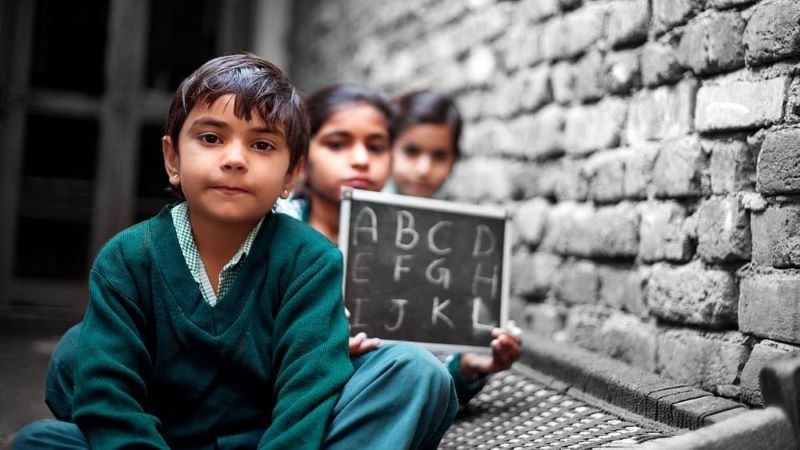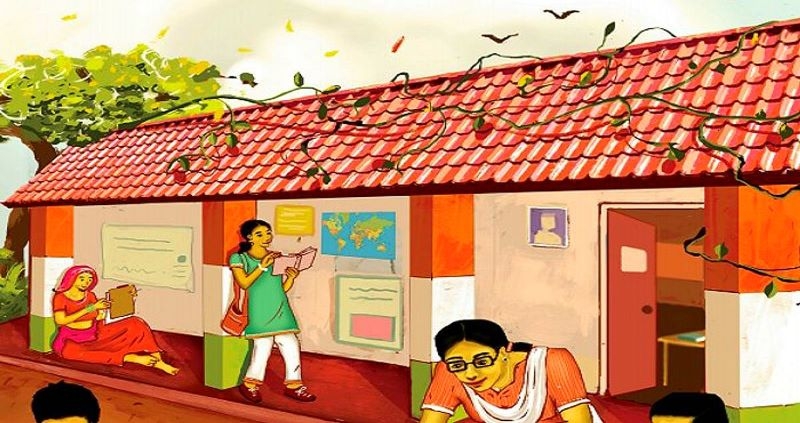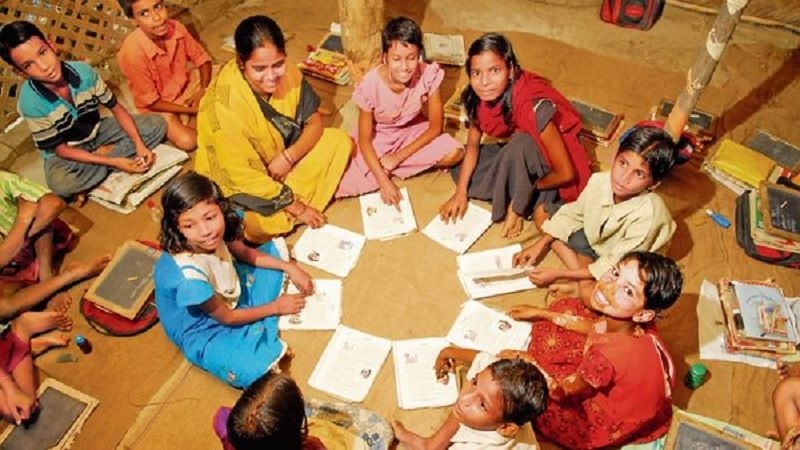NEP targets to bring two crore out-of-school children into mainstream

New Delhi, July 31: The National Education Policy 2020 approved by the Union Government aims to bring about two crores out of the school children into the mainstream. It says that no language will be imposed on any student and several foreign languages will also be offered at the secondary level.
The major reforms in school education brought by the NEP 2020 include universalization of early childhood care education (ECCE), national mission to focus on basic literacy and basic numeracy, no rigid separation between arts and sciences streams, and removal of separation between vocational and academic and curricular and extra-curricular.
The NEP has emphasized mother tongue or local language or regional language as the medium of instruction at least till the Grade 5, but preferably till Grade 8 and beyond.
“About two crore out of the school children will be brought back into the mainstream under the NEP 2020. Open learning for classes 3, 5, and 8 through NIOS and State Open Schools, secondary education programs equivalent to Grades 10 and 12, vocational courses, adult literacy, and life-enrichment program are some of the proposed ways for achieving this”, an official release said.

This will bring the hitherto uncovered age group of 3-6 years under the school curriculum which has been recognized globally as the crucial stage for the development of mental faculties of a child. The new system will have 12 years of schooling with three years of Anganwadi/pre-schooling, the release said.
Under the NEP 2020, there will no rigid separations between arts and sciences, between curricular and extra-curricular activities between the vocational and academic streams. Vocational education will start in schools from the 6th grade and will include an internship.
In college education there will be a choice between 3- and 4-year undergraduate courses, multiple entry and exit options in degree courses adding 3.5 crore seats in higher education institutions which will now have single regulator, discontinuation of M Phil program and fixation of fees are among the higher education reforms outlined.
Elaborating on the reforms, Secretary, Education Ministry Amit Khare said a press briefing the policy aims to increase the Gross Enrollment Ratio in higher education including vocational education from 26/3 percent (2018) to 50 percent by 2035and 3.5 crore new seats will be added to Higher Education Institutions (HEIs).

Reforms in schools
* Replacement of 10+2 pattern with a 5+3+3+4 pattern and teaching up to at least class 5 in the mother tongue or a regional language.
* Board examinations for class 10 and 12 will be continued but will be reformed to eliminate the need for taking coaching classes.
* Activity-based learning below class 2.
* Coding and internships in class 6.
* Multi-disciplinary, flexible choice of subjects in classes 9 to 12.
*All students will take school examinations in Grades 3, 5, and 8.
Reforms in Colleges
* Choice between 3- or 4-year undergraduate courses
* Multiple entry and exit options in the degree courses
* Discontinuation of M Phil program
* Common Entrance Test for admissions to universities and colleges to be conducted by the National Testing Agency (NTA).
* Fee fixation under the regulatory framework
* Academic credits would be served in DigiLocker, which would enable students who drop out to resume their program without having to take fresh admissions.